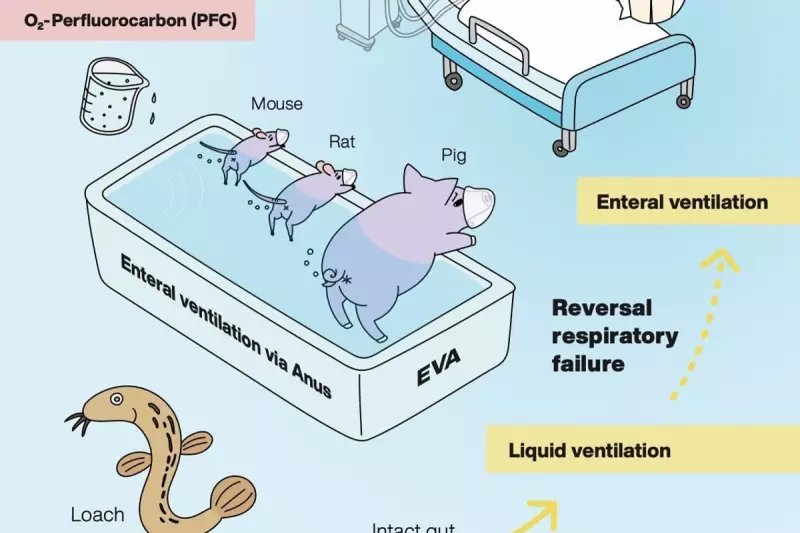
In what might sound like science fiction, a team of Japanese researchers has been honoured with the prestigious Ig Nobel Prize for developing a revolutionary breathing technique that could transform emergency medicine. Their groundbreaking discovery? Mammals can effectively absorb oxygen through their intestines.
The Unconventional Breakthrough
Scientists from Tokyo Medical and Dental University have demonstrated that during respiratory emergencies, administering oxygen through the rectal cavity could provide a life-saving alternative when conventional breathing methods fail. The research, published in the respected journal Med, shows that both mice and pigs can successfully absorb oxygen this way when their lungs are compromised.
How Butt Breathing Works
The technique involves two primary methods:
- Gas ventilation: Pumping oxygen directly into the intestinal tract
- Oxygenated liquid: Using special fluids saturated with oxygen that are introduced into the rectum
Remarkably, the oxygenated liquid method proved significantly more effective, with 75% of mice surviving potentially fatal low-oxygen conditions when treated this way.
Real-World Medical Applications
This discovery isn't just a scientific curiosity—it has genuine potential to save human lives. Patients experiencing severe respiratory distress, including those with COVID-19 complications, could benefit from this alternative oxygen delivery method when traditional ventilators are unavailable or insufficient.
Lead researcher Takanori Takebe emphasised the practical importance: "The rectal ventilation approach might provide a crucial alternative for patients facing respiratory failure, particularly during pandemic situations where ventilator shortages occur."
Ig Nobel Recognition
The Ig Nobel Prizes, organised by the Annals of Improbable Research, celebrate scientific achievements that "first make people laugh, then make them think." This year's ceremony was conducted virtually, continuing the tradition of honouring research that challenges conventional thinking while maintaining scientific rigour.
While the concept might initially provoke amusement, the serious medical implications of this discovery could eventually revolutionise how emergency medicine approaches respiratory crises, proving that sometimes the most unconventional ideas lead to the most significant breakthroughs.





